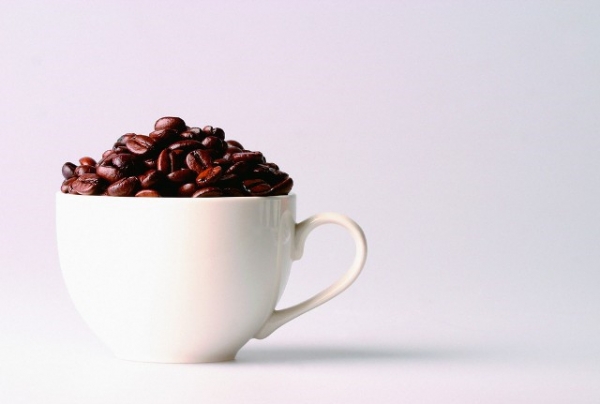It is healthy to drink several cups of coffee a day.

For professional baristas, please follow the coffee workshop (Wechat official account cafe_style)
A cup of coffee may not seem like much, but the amount of caffeine in it may exceed the amount recommended in dietary guidelines.
"X-cup coffee can increase or reduce the risk of y-disease." the headline of the health page often describes coffee as a caffeine curse or a cure for all diseases. A recent study of caffeine and caffeoylquinic acid (CQA) levels in European coffee showed that the chemical composition of "one cup" of coffee varied greatly, while the caffeine intake of coffee consumed by pregnant women could easily exceed the recommended level of 200mg per day.
Alan Crozier of the University of Glasgow (the University of Glasgow) is the director of the unfunded project. He said the study was entirely driven by curiosity. As an extension of the previous study of Sugara Coffee, the study measured the caffeine-CQA ratio of more than 100 espresso.
The results showed that the caffeine-CQA ratio of each sample varied from 0. 7 to 11 under different brewing conditions. The measured sample capacity also ranges from 13 to 104 milliliters. So it's easy to understand why Crozier says "a cup of coffee" is a hugely changing measure. Therefore, it is difficult for us to say how many cups of coffee are good for our health. The same is true for epidemiological studies.
So, what exactly is CQA? Coffee beans contain a variety of phenolic substances, such as 3-caffeoylquinic acid, 4-caffeoylquinic acid, and 5-caffeoylquinic acid, among which 5-caffeoylquinic acid is the main phenolic compound in coffee. Epidemiological studies have shown that coffee drinkers have a lower incidence of type 2 diabetes, cardiovascular disease, and endometrial cancer and liver cancer, which may be related to CQA. In this way, CQA seems to be a panacea, but the exact effect remains to be further studied.
Although the biological effects of CQA have not been thoroughly studied, we already know that these substances are more sensitive to baking than caffeine. At the same time, the type and blending of coffee beans can also affect the caffeine-CQA ratio. In common coffee beans, Robusta contains twice as much caffeine as Arabica.
Tim Bond of the British Tea Consulting Association (UK TeaAdvisory Panel) suggests that since the way coffee is brewed affects the content of caffeine and CQA, such information should be provided on the coffee package to help consumers make informed decisions.
Future research will measure people's coffee intake more accurately, said Kevin Croft, a nutrition and metabolism expert at the University of Western Australia. At the same time, using biomarkers, we will get a more precise link between coffee intake and disease risk.
Important Notice :
前街咖啡 FrontStreet Coffee has moved to new addredd:
FrontStreet Coffee Address: 315,Donghua East Road,GuangZhou
Tel:020 38364473
- Prev

Coffee is not so amazing, no more than 3 cups a day.
Recently, the popular word in WeChat circle is "Why do foreigners drink coffee every day?" Amazing secrets you don't know.
- Next

Take you to understand the different coffee cultures around the world
1/3 people in the world drink coffee, but it seems that no two countries drink coffee in the same way. It can be said that there are as many ways to drink coffee as there are countries in the world. How on earth do people all over the world enjoy and drink coffee? People in Arab countries like to drink small cups of sweet coffee. At breakfast in France, the French
Related
- Beginners will see the "Coffee pull flower" guide!
- What is the difference between ice blog purified milk and ordinary milk coffee?
- Why is the Philippines the largest producer of crops in Liberia?
- For coffee extraction, should the fine powder be retained?
- How does extracted espresso fill pressed powder? How much strength does it take to press the powder?
- How to make jasmine cold extract coffee? Is the jasmine + latte good?
- Will this little toy really make the coffee taste better? How does Lily Drip affect coffee extraction?
- Will the action of slapping the filter cup also affect coffee extraction?
- What's the difference between powder-to-water ratio and powder-to-liquid ratio?
- What is the Ethiopian local species? What does it have to do with Heirloom native species?

